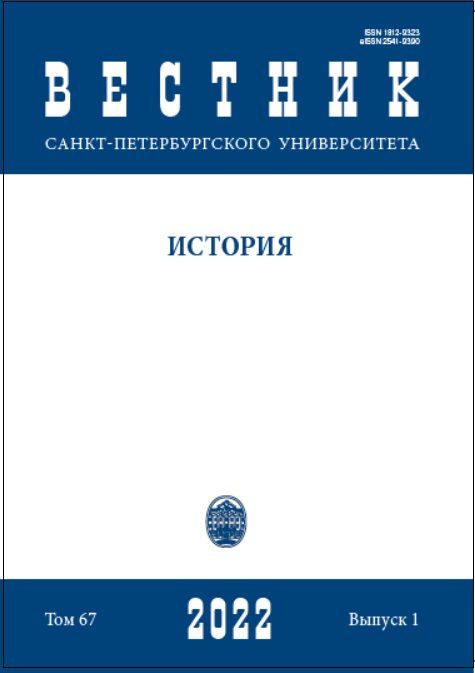Cossack adventure of Walerian Kalinka, a future monk of the Ressurectionist Congregation
DOI:
https://doi.org/10.21638/11701/spbu02.2022.110Abstract
Before starting a career as a Polish priest and scholar, Walerian Kalinka took part in various initiatives aimed at restoring Poland's independence. One of the most "exotic" of his enterprises was his participation in the formation of the so-called Sultan Cossacks detachments, military units consisting of the Slavic population. From the perspective of Polish emigrants, the time of the confrontation between Turkey and the Western powers of Russia was ideal for the formation of the Polish army. Kalinka was as an adjutant to General Władysław Zamoyski and on his behalf led the recruitment into the army, and also rebuilt the already existing detachment of the violent Michał Czajkowski, known as Sadyk-Pasha, into a unit about the Polish character regarding discipline and ties with emigration circles. Despite the weakening of Russia's position, the new balance of political forces after the Crimean War did not contribute to the revival of Poland as a sovereign state. Many Polish soldiers abroad went through an internal crisis. Kalinka led the demobilization of Cossack volunteers and sought a place for them in exile. Once again, the war did not lead to freedom. Remaining under the influence of religiosity of general Zamoyski, Kalinka began to pay more attention to the connection between the national question and Catholicism. Thus, Kalinka became close to the already existing Order of the Resurrection of the Our Lord, also called Resurrectionists. In the future, he joined this order and became a humble monk, who, however, never gave up geopolitical illusions and, through religious initiatives, tried to realize his political dreams.
Keywords:
Kalinka, Czartoryski, Ressurectionists, Cossacks, Russia, Ukraine
Downloads
References
Downloads
Published
How to Cite
Issue
Section
License
Articles of "Vestnik of Saint Petersburg University. History" are open access distributed under the terms of the License Agreement with Saint Petersburg State University, which permits to the authors unrestricted distribution and self-archiving free of charge.





